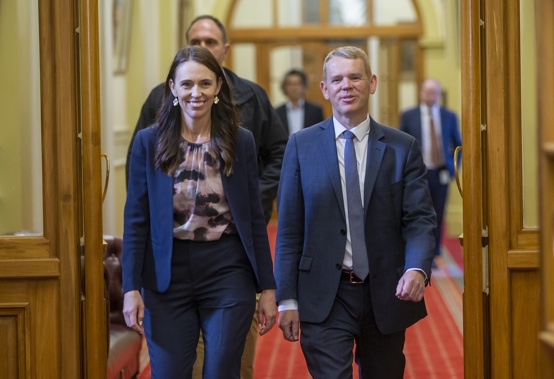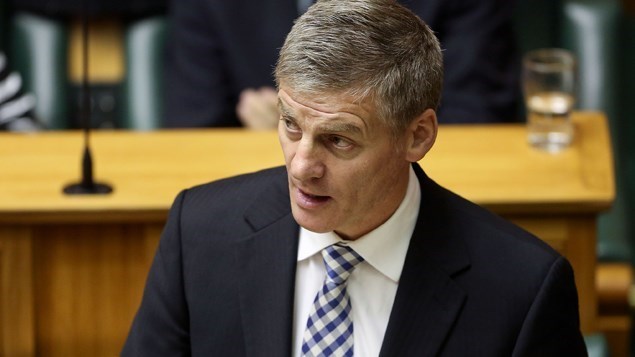
The Prime Minister’s Emerging Priorities Fund is a handy little pot of money that New Zealand leaders have tapped for decades.
It’s a contingency fund, not tied to any particular purpose, and can be drawn down and spent on whatever moves the Prime Minister of the day, at his or her discretion.Spending decisions related to the fund are released to the public, unless they’re sensitive and warrant withholding. However the upper limit of the fund is not disclosed.According to the Treasury’s tally, released under the provisions of the Official Information Act, there’s $35.5m of spending from the fund committed through to fiscal 26/27. But the total is higher. Additional spending, authorised by Chris Hipkins in August and tied to the country’s national security and intelligence priorities, was redacted for the purpose of protecting confidential advice to the Government.
Still, the fund appears to be relatively small. The highest its balance has ever been at budget time is $119m. That was in 2011, across a forecast period of four years, under Prime Minister John Key. The tally comes with the Treasury’s caveat that this is a point in time total and does not represent an accounting of what was actually spent. Conversely, the lowest balance recorded at budget time was $15.57m in 2014, also the John Key years.The Treasury’s information doesn’t go back further than 2011. Collation of the information before this time would require substantial research, budget manager Stephen Bond said in responding to ZB Plus’ Official Information Request.
It’s not clear that the public good gains much from this handy Prime Minister’s purse; afterall, the Between-Budget Contingency (BBC), is available to the Cabinet for proposals requiring new operating funds between Budgets. What the Prime Minister’s fund does best is cover costs that are dear to the PM’s heart, less favourably known as pet projects, or that are thrown up by events, most recently the election in the case of Chris Hipkins. It is especially useful in making nettlesome or embarassing funding problems disappear.Looking back, its draw downs shed light on our Prime Ministers of recent times.

Chris Hipkins
Chris Hipkins used the fund six times in his nine and a half months in the Prime Minister’s office. One of his first acts was to spend $625,000 from the fund to create a post for his friend and colleague, recently-retired Prime Minister Jacinda Ardern. Hipkins made Ardern his “Special Envoy for the Christchurch Call” – a post-2019 effort to combat the spread and visibility of terrorist and violent extremist material online.Ardern isn’t paid for this work, but her role requires funding for related staff, travel, communications, event management and possibly security, official documents say.Whether the post will endure is an open question. Hipkins’ funding was extremely short-term, and runs out this month. A spokesperson for Prime Minister Chris Luxon said no decision has been made on continued funding for the post (the Christchurch Call unit itself is separately and jointly funded by the Department of Prime Minister and Cabinet and the Ministry of Foreign Affairs).The majority of money Hipkins doled out from the fund went to bolster policing and to combat a wave of retail robberies, an issue that dogged his Government, and Hipkins particularly as the former Police Minister, through this year’s election campaign.Between April and September Hipkins’ spent $24.333m on the police portfolio. In April, he used the fund to announce an additional $9 million to top up “retail crime prevention” efforts – to provide advice and funding to help small retailers prevent robbery – and in May he added $3.33m from the fund to help make up a further $11m increase to the fog cannon subsidy scheme for retailers.Both announcements were aimed at combating the entrenched view that the Labour Government was not doing enough to prevent and deter crime, and that, in particular, it was failing business owners who were on the front lines of a wave of robberies and attacks that targetted their premises.Hipkins’ final use of the fund was in September, just weeks before the election. He provided $12m described as “support to resolve a public sector pay adjustment [police]”.
 Jacinda Ardern
Jacinda Ardern
The fund is a powerful means by which prime ministers can make problems disappear quickly, and the best exemplar is surely Jacinda Ardern’s use of it last year to top up funding to the Shakespeare Globe Centre New Zealand, after Crown entity Creative NZ (CNZ), declined the centre’s funding application for reasons including that its Shakespeare-centred work focused on “a cannon of imperialism”.The funding in question was tiny, and the purpose for which the money was intended was confused in the reporting of the time, but the parochialism in CNZ’s assessment of the funding application sparked a public furore in New Zealand and fed embarassing international headlines to match.On October 17 Ardern gave interviews confirming that she didn’t agree with CNZ’s funding decision or the rationale for it, but, she said, it wasn’t her place to get involved.The following day she reversed course. A Government-led solution would be found, she announced, and then Minister of Education Chris Hipkins would work with the Shakespeare Globe Centre to find additional funding.The record shows that on October 26 Ardern found funding of $165,000 in “the Prime Minister’s Emerging Priorities Contingency” for the Shakespeare Globe Centre. Embarrassing problem solved.
 Bill English
Bill English
Like Hipkins, National’s Bill English had less than a year as Government leader to put his stamp on it, and much of that time was spent readying for an election.He tapped the fund just four times, and the single largest chunk of money, $5.55m over four years, went to a “social enterprise market development programme” aimed at tracking, increasing and expanding both the size and number of social enterprises – broadly speaking, businesses with specific social objectives.The programme was a corollary of English’s longstanding interest in applying evidence-based investment practices to social services – often called social investment – and particularly in using government funds to buy services from the most effective provider, including non-government agencies.English also used the fund to provide an immediate $5.25m in September 2017, just before his electoral defeat, to retain key personnel in Team New Zealand for the defence of the 36th America’s Cup regatta. English left the question of coughing up money to stage the 36th America’s Cup to the next government, which, as events transpired, wasn’t his.
 John Key
John Key
According to the Department of Prime Minister and Cabinet, the Prime Minister’s Emerging Priorities Fund was formally established in 2016, but it existed as a contingency in various forms as early as 2009.The Treasury provided relevant spending back to 2011; consequently not all of John Key’s years as Prime Minister are covered.From the data available, Key’s biggest spend from the fund was $18.313m, over four years starting in 2012, to respond to the Law Commission Report on the War Pensions Act 1954. In 2012, the Government was under pressure to respond to the report’s recommendations, including to provide pension coverage to a wider range of military deployments than those covered in the Act.What stands out about Key’s spending, however, is his penchant for tourism and developing tourist attractions and destinations; he dipped into the fund most frequently for programmes and plans related to the portfolio, which he himself held along with the Prime Ministership for nearly a decade.He found over $10m in the fund to help pay for the New Zealand Cycle Trail, the Twin Coasts Cycle Trail, and the Alps2Ocean Cycle Trail, and he also granted $4m from the fund for the construction of the Hundertwasser Art Centre in Whangārei, which houses both the work of artist Friedrich Hundertwasser and of contemporary Māori artists. There was also a further $8m, beginning in fiscal 16/17, which the Treasury’s OIA response described only as “investment in international visitor attraction”, which flowed through the Business, Science and Innovation portfolio. A spokesperson for Prime Minister Chris Luxon confirmed that the useful little fund won’t be on Finance Minister Nicola Willis’ chopping block tomorrow, when she delivers her mini-budget. He said no decisions have been made as yet relating to the fund.Full list of spending from the Prime Minister’s Emerging Priorities Fund and its predecessorsChris Hipkins- Acknowledging the coronation of King Charles the Third, $1.41m- The Prime Minister’s Special Envoy for the Christchurch Call, $625,000- Retail Crime Prevention Programme: additional funding, $9m- Fog Cannon Subsidy Scheme: in principle expense transfer, additional crown funding, $3.33m- Redacted Section 9(2)(f)(iv), confidential advice to Government- Support to resolve a public sector pay adjustment (Police), $12mJacinda Ardern- Central government support for the conservation of the St. James Theatre, Auckland, $15m- Funding Shakespeare Globe Centre NZ, $165,000- Supporting child wellbeing by enhancing social and emotional learning, $19.695m- Christchurch Call partnership, $917,000- “Poi community engagement programme” at the Women’s Rugby World Cup, $920,000- Covid-19 Service Recognition, $5.76m- Planning for Queen’s Platinum Jubilee, $1m- Further funding, National Erebus Memorial, $1m- Support for biodiversity initiatives $695,000- Continuing action to improve social inclusion, $32.733- Sanitary products in schools, $2.592- Paralympic Games coverage funding, $500,000- Strengthening the immunisation system, funding the response to measles outbreak, $2m- Establishing two internships, with PM’s chief science advisor to complete Māori Crown Relations-centred project, $75,000- Establish PM’s Vocational Excellence Award, $1.25m- Support for rainbow communities, $1.07m- Crown Acquisition of Kate Sheppard’s former residence in Christchurch, $5.2m- National Erebus Memorial: resourcing requirements, $2.6mBill English- Contributions towards the cost of Sir Colin Mead’s funeral, $90,000- Team NZ 36th America’s Cup defence, $5.25m- Supporting the longterm viability of Polyfest Festival, $200,000- Social enterprise market development programme, $5.55mJohn Key- Contribution to Hastings District Council Promotional Fund to support recovery from Havelock North water contamination incident, $100,000- Support for projects that strengthen digital technologies in national curriculum, $1m- Investment in international visitor attraction, $8m- Ministerial Services fiscal pressures, $67,000- Grant contribution to construction of the Hundertwasser Art Centre, $4m- The Queen’s Commonwealth Canopy, $1m- Funding for the visit by Prince Harry, May 2015, $450,000- Completion of the Twin Coasts Cycle Trail, $3m- Completion of the Alps2Ocean Cycle Trail, $935,000- Funding for Stadium Southland, $2m- Grant to Counties Manukau Pacific Trust, $6.5m- Funding for the visit by the Duke and Duchess of Cambridge, April 2014, $1.2m- Funding arrangements with Development West Coast, $1m- America’s Cup, further Government support, $5m- Additional support for disadvantaged children, $1.05m- Film NZ, $667,000- Computer Clubhouse, $1.923m- Support for food in schools, $399,000- Funding for the visit by the Prince of Wales and the Duchess of Cornwall, Nov 2012, $1.1m- Government response to the Law Commission Report, on War Pensions Act 1954, $18.313m- Pike River, Crown contribution to body recovery, $5m- The Queen’s Diamond Jubilee Regatta: arrangements for waka participation, $83,000- Surf Lifesaving NZ leadership programme, $25,000- Attendance by veterans at the anniversary of the Battle of Crete, $21,000
Take your Radio, Podcasts and Music with you









